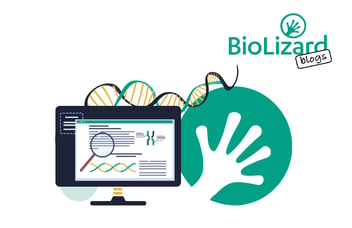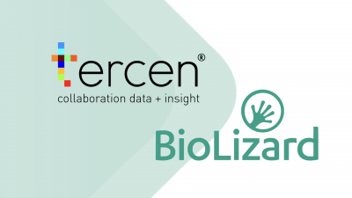Data Bytes: How can biomarkers de-risk drug development?
Biomarkers can play a crucial role in de-risking drug development by providing measurable indicators of biological processes associated with disease onset, progression, and treatment response.
In this episode of Data Bytes, we spoke with Dr Alexander Koch, Team Lead Bioinformatics at BioLizard, about the important place of biomarkers in drug development, and what you need to develop a successful biomarker.
Read the transcript
How can biomarkers de-risk drug development?
Lots of drugs fail during clinical trials. Unfortunately, most of them even fail in the later stages of clinical trials, which is an insanely costly thing for drug development companies to deal with.
So what we want to try to do is essentially minimize the guess work. And what companies are using for this de-risking are biomarkers.
We have two main types of biomarkers that are used. One is to get more insights into, for example, the method of action of their compounds. And then another type of biomarkers that people are using is to predict safety and efficacy of a compound.
How do you develop a successful biomarker?
There are definitely cases where it makes sense to start from what has been published before or at least make the effort to scan literature and public resources. But then the next step is generating relevant, valuable and useful data sets that can be mined to find the most appropriate biomarkers.
How can data science advance biomarker development?
Data science is absolutely necessary currently for biomarker discovery and development. Because of the size and dimensionality of the data sets it’s no longer feasible to use very basic techniques to mine and process and analyze those data sets. More recent, for example, machine learning based methods also allow us to discover more complex and fine grained patterns than we could before.
How does BioLizard support their clients' biomarker research?
What we do well as BioLizard is that we, first of all, have a comprehensive, holistic view of the whole process. We are very well-versed in data science and the analytical side of things.
We know our way around the latest machine learning and AI technologies, while at the same time having an understanding of the underlying biology and having an understanding of the underlying clinical need - which is necessary to be able to talk about analysis results and to be able to discuss approaches with the scientists and clinicians that work in the companies that we collaborate with.
We are not blinded by fancy machine learning and AI. We are aware of what these technologies - or tools in the end - are very good at, without forgetting what they're not very good at, so that we can think critically about their use and about the results they produce.
Want more information?
Download our white paper on leveraging machine learning for biomarker discovery.
.png?width=170&height=171&name=teampics_Alexander-TL%20(1).png) About Dr. Alexander Koch
About Dr. Alexander Koch
Alexander holds a PhD in bioinformatics from Ghent University. After his PhD, Alexander's post-doc at Maastricht University focused on integrating large scale genomics datasets to discover new epigenetic biomarkers that could be used to diagnose cancer and predict patient responses to therapy. Alongside his deep expertise in bioinformatics and cancer immunology, Alexander is also passionate about effective data visualization. At BioLizard, Alexander leads the bioinformatics team.



